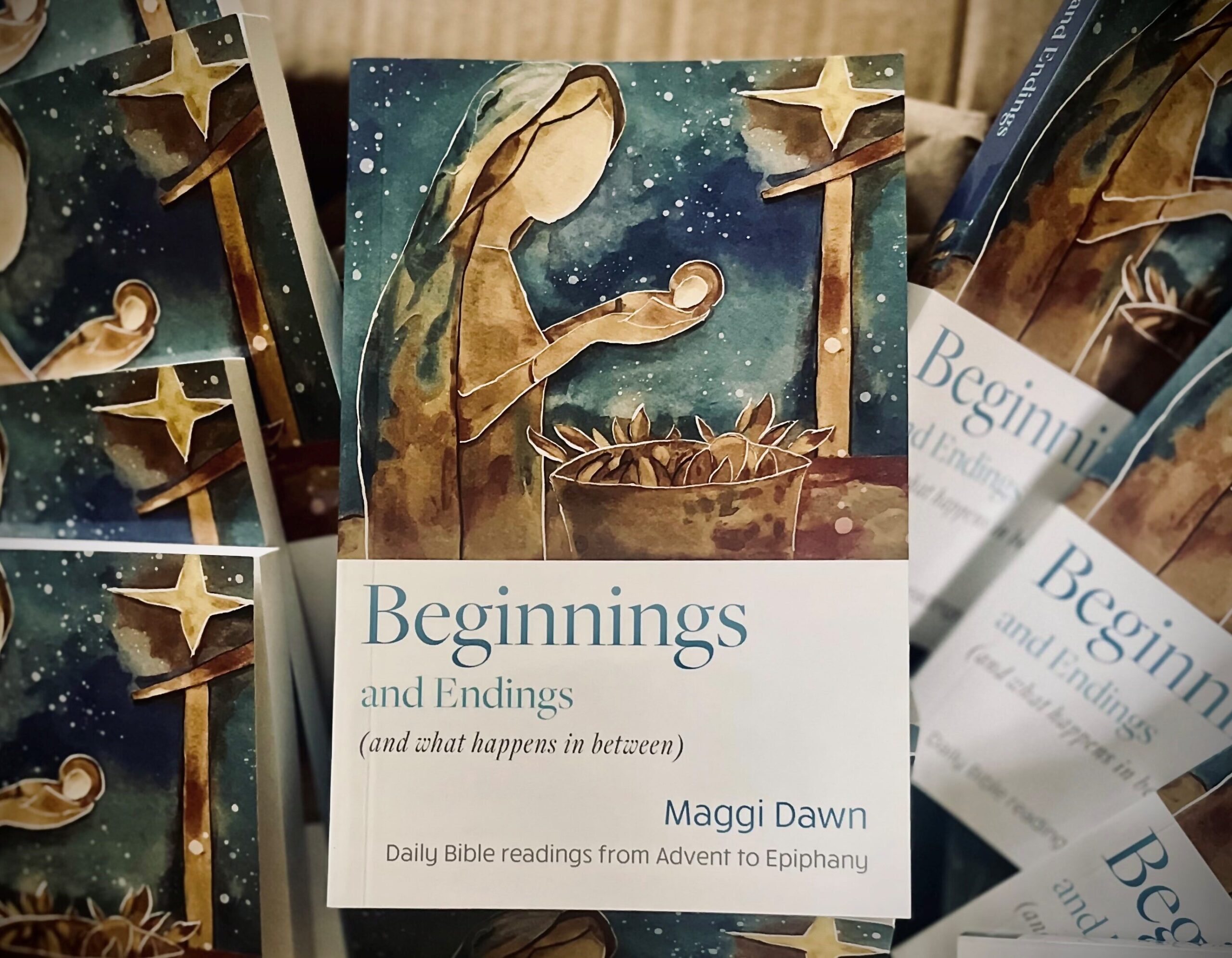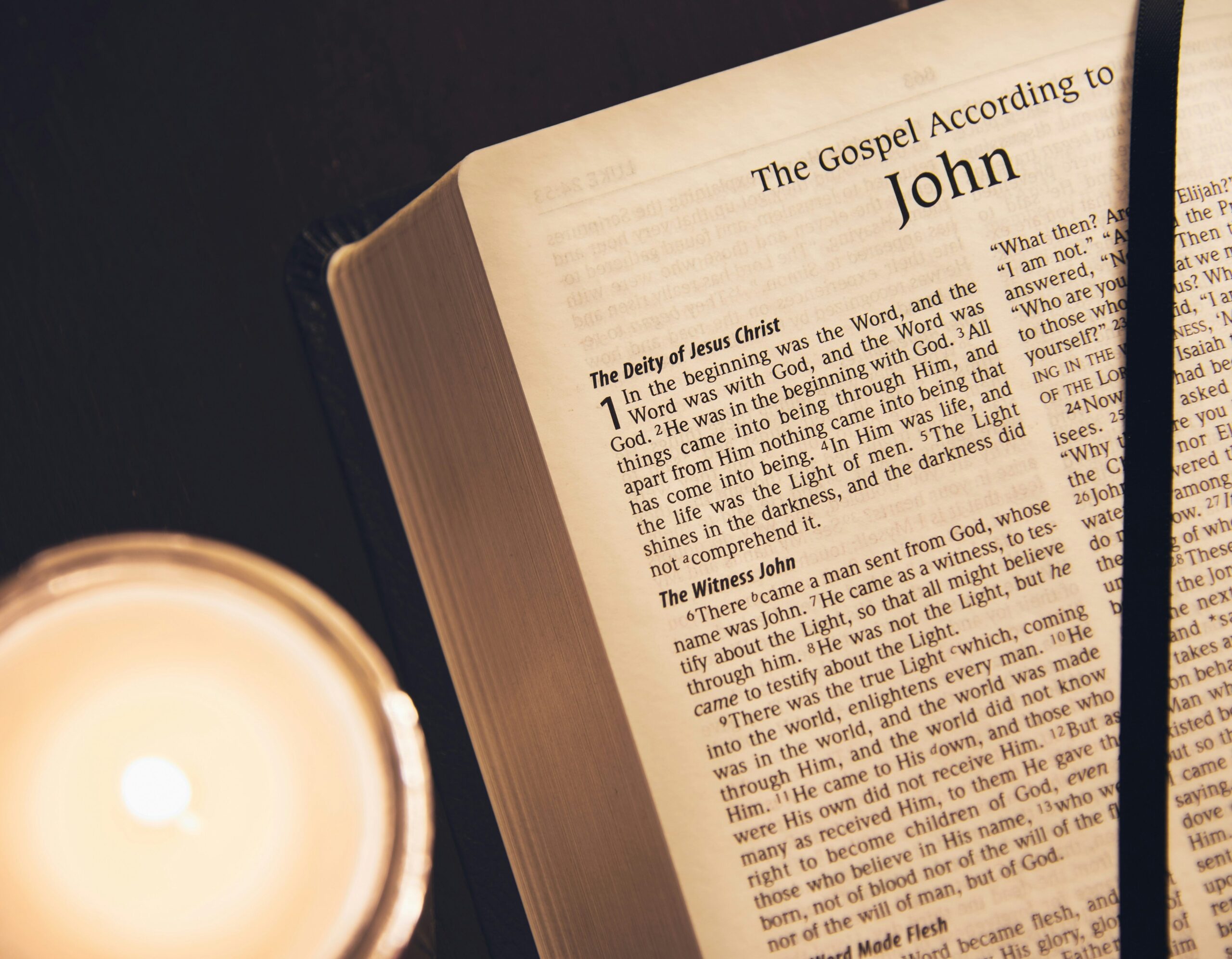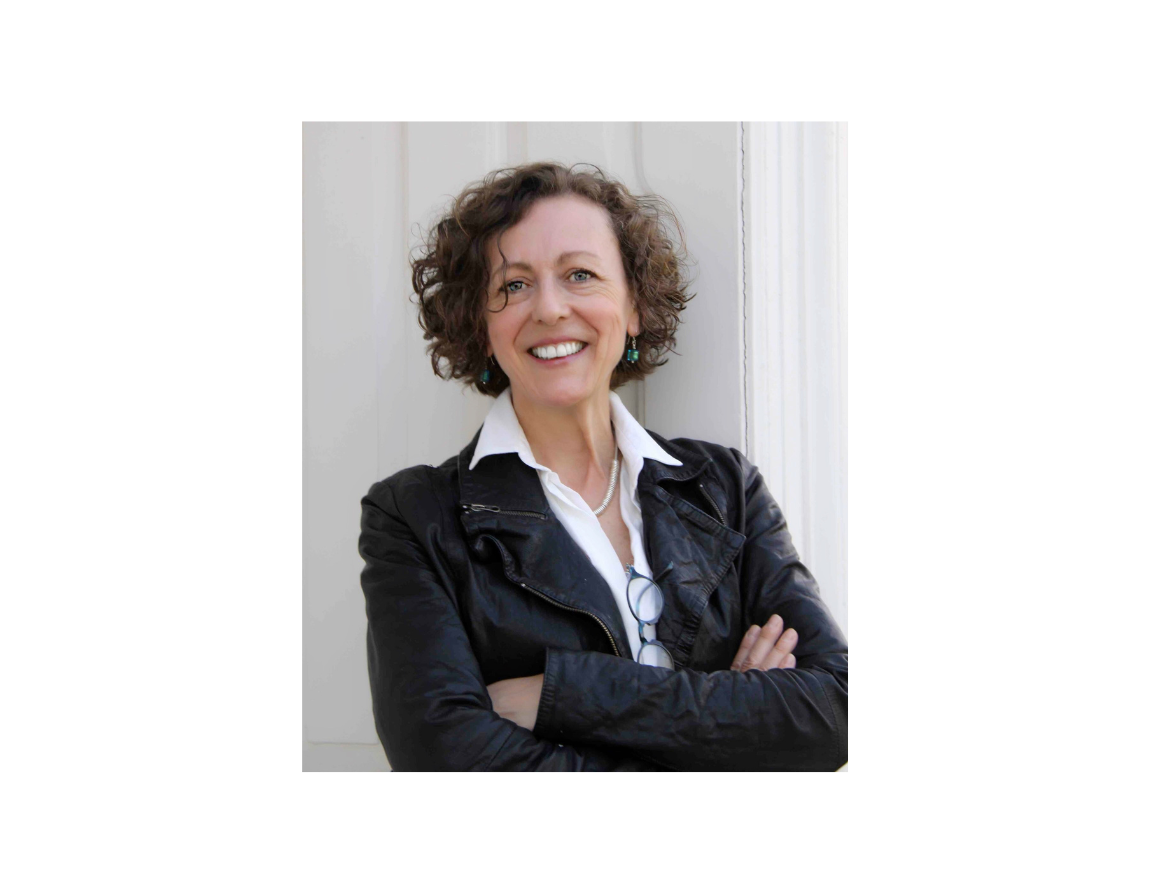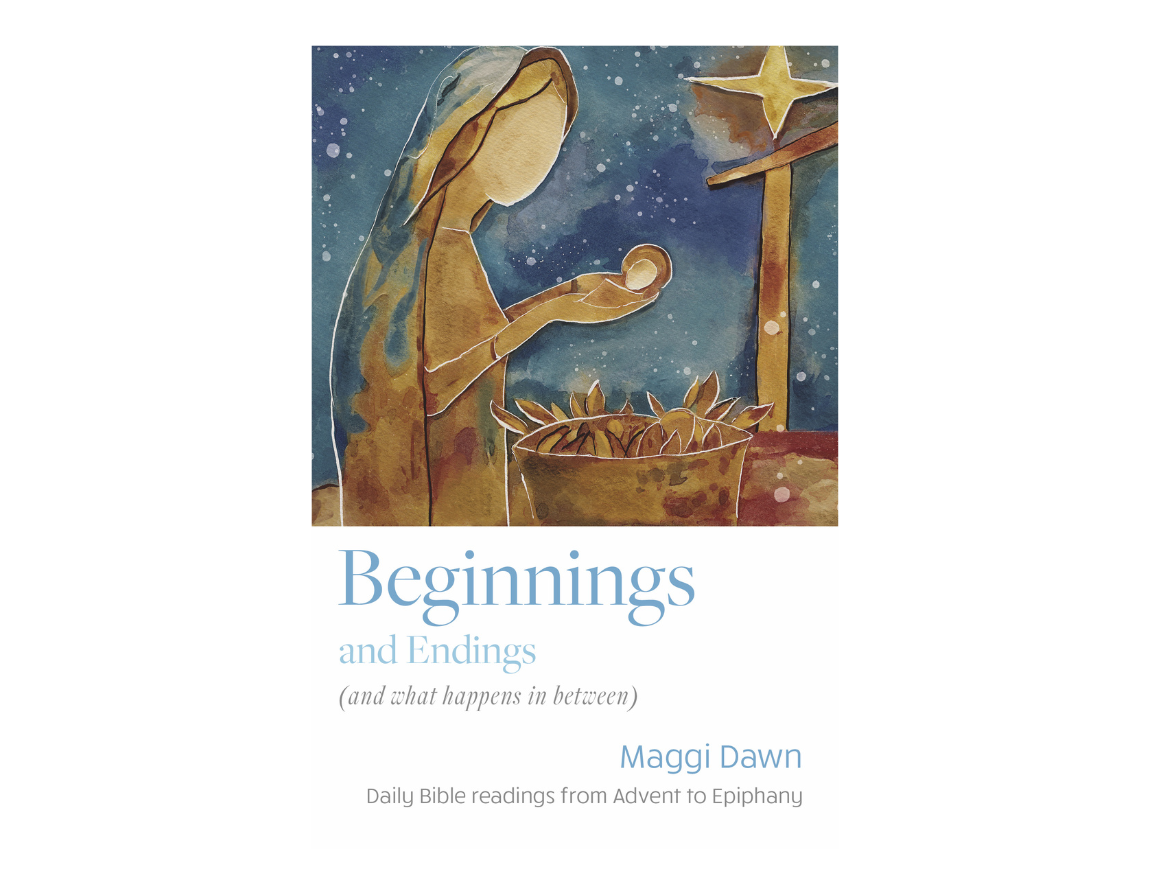Maggi Dawn reflects on the publication of the new edition of her Advent book, Beginnings and Endings (and what happens in between), 20 years after it began life as a series of blog posts.
19 October 2025
Beginnings and endings
There is nothing quite like the feeling when the box of pre-publication books arrives on the doorstep. It’s joy (yay! It’s done!) and astonishment at how it looks so much more convincing in print than it did on my screen. But these are mixed with little bit of fear (Did I really correct all the typos? Did I actually write anything stupid?) mixed with uncertainty (will anyone actually read it?) . . .
But here it is. Twenty years after I wrote the first version of what became Beginnings and Endings as daily blog posts, and 18 years after I edited that for publication, the third version — second published edition — is here.
It’s not like I haven’t thought about it in 18 years — I have led countless Advent retreats for churches, dioceses and seminaries in that time, telling and retelling the stories. Interesting to say the least. But the nit-picky process of editing the text took me back to my own writing in a more intense way, considering whether it still makes sense — to me, let alone anyone else! — and what needed an update. So what did I learn along the way?

There is nothing quite like the feeling when the box of pre-publication books arrives on the doorstep.
Promise after promise
First up, I found out that I was still writing to myself as much as to anyone else. The biblical passages we read through Advent bring us face to face with some of the most dramatic, scary, apocalyptic-ending stories. The end of the world. The end of some dreams. The end of life as we know it. It’s not for the faint-hearted, this kind of stuff, and it is notoriously difficult to preach about. But it also carries us into promise after promise of new beginnings.
A religion based in the observation of rules and regulations winds down and is replaced by a God-made-flesh — a God who lives in a body, like you and me; a God who not only knows all about us, but totally relates to our situation; a God we can not only admire from a distance, but can connect with, closer than the closest friend.

A religion based in the observation of rules and regulations winds down and is replaced by a God-made-flesh — a God who lives in a body, like you and me.
Shaping meaning
Second, I realised how much this book emerged from a combination of my academic work and my ministry in the church. Literary studies are a central thread in my research; I spend a lot of time looking at how the form in which something is written creates and nuances its meaning. Beginnings and endings are highly significant for literary texts. The way a book begins or ends completely affects the meaning of the whole.
Some books begin by telling you the end of the story, and then wheeling back to explain how things ended up this way. Some of them tell you a story start to finish, but then the ending is unexpected, or ambiguous, and makes you go back to the beginning to reconsider whether you understood it right the first time. And so much more…
When we read the Bible, we are not reading a recipe book or an instruction manual: a great deal of the scriptures are literary, and you cannot grasp their meaning without paying attention to that. Consequently, this Advent book traces the way the gospel writers begin their stories about Jesus — at his birth, or with hundreds of years of ancestry, or with a glimpse into heaven? And also how they end: triumphantly, tragically, ambiguously, open-ended, or with a twist in the tale?

Beginnings and endings are highly significant for literary texts. The way a book begins or ends completely affects the meaning of the whole.
A shared humanity
A similar analysis of some of the incidental narratives along the way is hugely revealing about the human condition: the journey of the Magi, and the disruptions in the life of John the Baptist’s parents, Zechariah and Elizabeth, and the multi-layered epic of Elijah’s journey through the wilderness — all of these are stories that, read as literature, can suddenly seem as if the author knows all about you — and is writing about you as much as about their heroes. Sometimes the little snippets we hear in church are the in-between moments; reading their narrative and taking notice of their beginnings and endings does a great deal to illuminate what goes on in between.
However much we spend Advent contemplating beginnings and endings, the reality of life is almost always something in-between. I was in-between when I wrote the first version: taking on more senior academic roles at my university, at the same time as being ordained; dealing with a bereavement, and assorted other things at the same time as working out how to be the mother of a small child.
Twenty years on, what were the in-betweens back then have long since ended, as new beginnings opened up year by year? Now I’m in the later chapters of my own career, and I find myself thinking a lot about endings, both to do with life and with work: about friends and family I have lost in the meantime and sometimes about the prospect of retirement, which still seems unrealistic and unappealing to me. But more than ever I am taken up with thoughts about new possibilities that still – unexpected and unbidden – keep appearing on the horizon.

I still find that the Advent narratives – like daylight on the horizon – bring with them the hope that life still goes on, and there is more yet to know.
Endings and beginnings
Editing the book, I was intrigued to see how quickly language dates! Some words that were run-of-the-mill 20 years ago sound outdated and clunky now or have been replaced by new terminology. And ideas, too, have moved on – new discoveries in science, medicine, archaeology and more demanded a few rewrites and quite a lot of minor tweaks to the text.
But overall, I found myself back in those same narratives, marvelling at how much these ancient stories speak to our situation today. Here I am in the later chapters of my own career, and thoughts of endings are often pushed under my nose. The practical ones – am I going to retire anytime soon? (Or will I do what my father did, and work to the end of life, because it’s a passion, not just a job? Probably!) The personal ones – watching the next generation grow up and the arrival of grandchildren or great-nieces and nephews. And the sorrowful ones – news of a friend or colleague whose life has ended, some of them after a wonderful long life, some of them gone too soon.
I still find that the Advent narratives, the beginnings and the endings, still speak volumes to all of these endings, but – like daylight on the horizon – bring with them the hope that life still goes on, and there is more yet to know.
So, the books arrived, and I did the joy-fear-uncertainty thing. Will anyone read it? Go on, make me happy!
This article first appeared on Maggi’s Substack channel.


